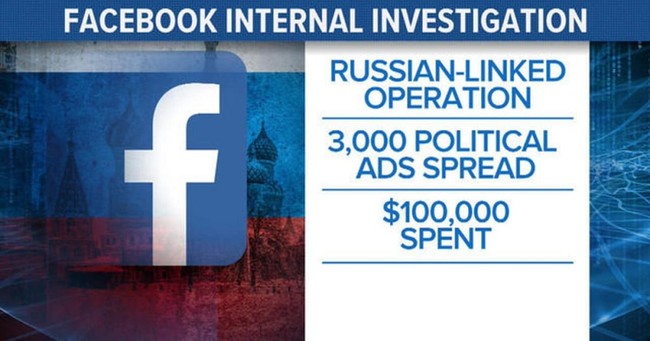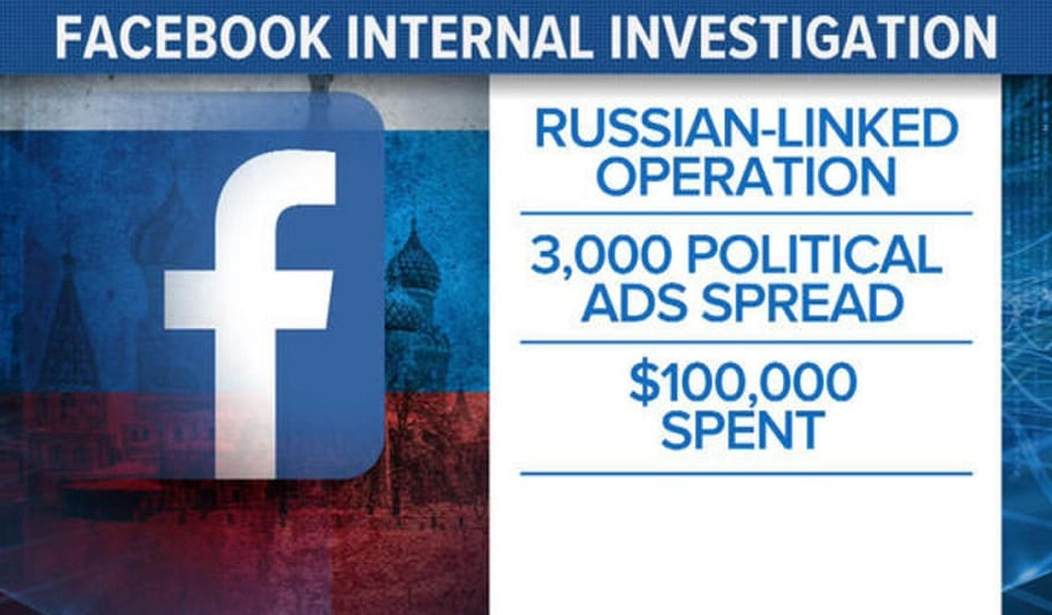
For reasons that quite escape me, a lot of people have blood oozing from their pores over alleged Russian “troll farms” and allegations that the Russian government bought ads on Twitter and Facebook. The underlying premise seems to be that if you support or oppose Black Lives Matter or you believe that Confederate statues should be left the hell alone or melted down for bottle caps, and if a Russian “troll farm” sends out tweet/post on the subject, then your position is automatically being dictated by Moscow and your vote is being swayed by the Kremlin. That is stupid on its face but Trump is president so we’ve reached the point where absolutely nothing is too stupid to say or even believe so long as it is said or believed because of a hate of Trump.
Last week, I posted on the problem and I don’t see how foreign use of social media can possibly be regulated in a way that doesn’t crush the ability of individuals and groups to get involved in elections.
As it stands right now, I think foreign purchases of political ads on social media are just part of the landscape. We need to learn to live with it because every possible solution seems, to me, to be much worse than the disease itself.
Mark Penn, who was Hillary Clinton’s pollster, has taken to the pages of the Wall Street Journal to make the same case:
After an extensive review, Facebook has identified $100,000 of ads that came from accounts associated with Russia. Assume for the sake of argument that Vladimir Putin personally authorized this expenditure. Given its divisive nature, the campaign could be dubbed “From Russia, With Hate”—except it would make for a disappointing James Bond movie.
Analyzing the pattern of expenditures, and doing some back-of-the-envelope math, it’s clear this was no devilishly effective plot. Facebook says 56% of the ads ran after the election, reducing the tally that could have influenced the result to about $44,000. It also turns out the ads were not confined to swing states but also shown in places like New York, California and Texas. Supposing half the ads went to swing states brings the total down to $22,000.
Facebook also counted ads as early as June 2015. Assuming they were evenly spread and we want only those that ran the year of the election, that knocks it down to $13,000. Most of the ads did not solicit support for a candidate and carried messages on issues like racism, immigration and guns. The actual electioneering then amounts to about $6,500.
Now look at the bigger picture. Every day, Americans see hundreds of ads on TV and radio, in newspapers and magazines, on billboards and smartphones. North Americans post to Facebook something like a billion times a day, and during the election many of those messages were about politics. Facebook typically runs about $40 million worth of advertising a day in North America.
Then consider the scale of American presidential elections. Hillary Clinton’s total campaign budget, including associated committees, was $1.4 billion. Mr. Trump and his allies had about $1 billion. Even a full $100,000 of Russian ads would have erased just 0.025% of Hillary’s financial advantage. In the last week of the campaign alone, Mrs. Clinton’s super PAC dumped $6 million in ads into Florida, Pennsylvania and Wisconsin.
I have 40 years of experience in politics, and this Russian ad buy, mostly after the election anyway, simply does not add up to a carefully targeted campaign to move voters…
Millions of taxpayer dollars have probably been spent already poring over that $100,000 of Facebook ads. Better to keep it all in perspective, as everyone did in 1996. The only way Russia will get its money’s worth is if Washington overreacts and narrows the very freedoms that make America different in the first place.
None of this means anything because we’re living in a post-fact and post-evidence era where emoting is sufficient to make a case. But this sideshow is not harmless. Increased scrutiny will bring increased costs to advertisers and price some (c)3 and (c)4 out of the market. Other voices, like John McCain, are fighting to increase regulation of political ads. This panic over the idea that there are Russians in our closets and under our beds is not only demeaning it is dangerous because it is empowering the voices most hostile to free speech to take action.













Join the conversation as a VIP Member